The Wheels of Industry.
Page 10
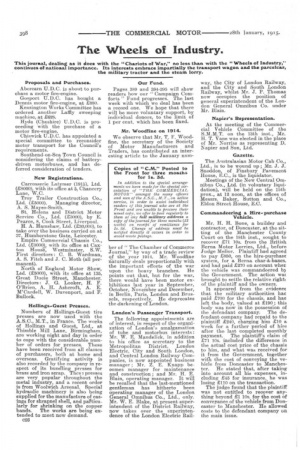
Page 11
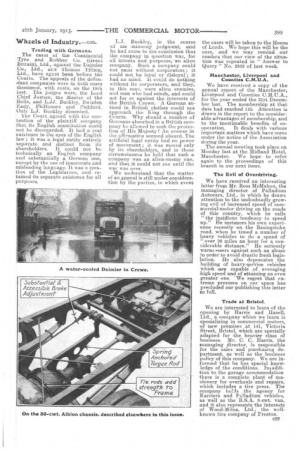
Page 12
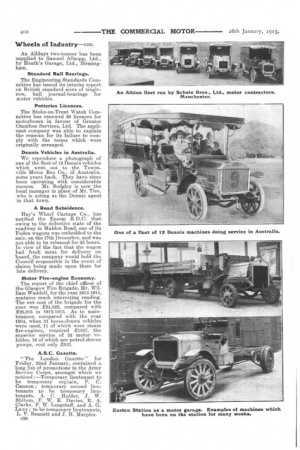
Page 14
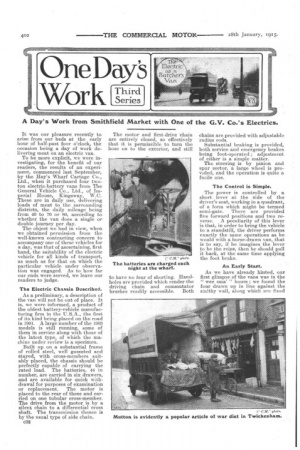
Page 15
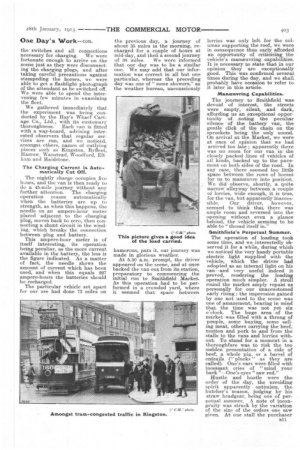
Page 16
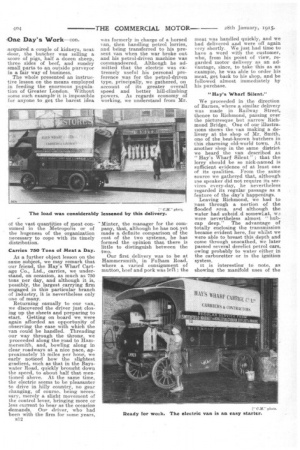
Page 17
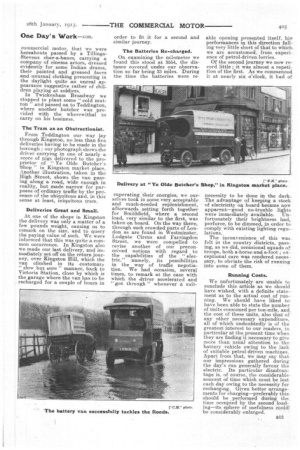
If you've noticed an error in this article please click here to report it so we can fix it.
This journal, dealing as it does with the "Chariots of War," no less than with the "Wheels of Industry," continues of national importance. Its interests embrace impartially the transport wagon and the parceIcar, the military tractor and the steam lorry.
Proposals and Purchases.
Abercarn U.D.C. is about to purchase a motor fire-engine.
Gosport U.D.C. has bought a Dennis motor fire-engine, at £880. Kensington Works Committee has ordered another Laffiy sweeping machine, at 2628.
Hyde (Cheshire) U.D.C. is proceeding with the purchase of a motor fire-engine.
Chiswick U.D.C. has appointed a special committee to reconsider motor transport for the Council's requirements.
Southend-on-Sea Town Council is considering the claims of batterydriven motorbuses, and has deferred consideration of tenders.
• New Registrations.
Carrosserie Latyiner (1915), Ltd. (28000) with its office at 5, Chancery Lane, W.C.
Troy Trailer Construction Co., Ltd. (25000). Mana_ging director, A. S. Mayes-Smith.
St. Helens and District Motor Service Co., Ltd. (23000), by E. Pearce, 8, Cook Street, Liverpool.
H. A. Hamshaw, Ltd. (230,000), to take over the business carried on at 37, Humberstone Gate, Leicester. Empire Commercial Chassis Co., Ltd. (23000), with its office at Caxton House, Westminster, S. W. First directors : C. B. Wardman, A. S. Fitch and s. C. Moth (all permanent).
North of England Motor Show, Ltd. (25000), with its office at 135, Great Dude Street, Manchester. Directors : 3. G. Looker, H. F. O'Brien, A. IL Ashcroft, A. E. M'Cardell, W. Davenport, and F. Bullock.
Hollings-Guest Presses.
Numbers of Hollings-Guest tire presses are now used with the A.S.C., 1VI.T., in France. The works of Hollings and Guest, Ltd., at Thimble Mill Lane, Birmingham, are working night and day in order to cope with the considerable number of orders for presses. These have been received from all classes of purchasers, both at home and overseas. Gratifying activity is also recorded by the company in respect of its bundling presses for brass and iron scrap. Thee 3 presses are very popular throughout the metal industry., and a recent order is from Woolwich Arsenal. Special hydraulic machinery is also being supplied for the manufacture of casings for shrapnel shell, and palticularly for shrinking on the copper bands. The works are being extended to meet new demand.
c20 Our Fund.
Pages 389 and 394-395 will show readers how our " Campaign Comforts" Fund progresses. The last week with which we deal has been a record one. We hope that there will be more voluntary support, by individual donors, to the limit of 1 per cent, which has been fixed.
Mr. Woodfine on 1914.
We observe that Mr. T. F. Woodfine, the secretary of the Society of Motor Manufacturersand Traders, has contributed an interesting article to the January num her of " The Chamber of Commerce Journal," by way of a trade review of the year 1914. Mr. Woodfine naturally deals proportionally with the important effects of the war upon the heavy branches. He points out that, but for the war, there would have been motor exhibitions last year in September, October, November and December, in Berlin, Paris, London and Brussels, respectively. He deprecates the darkening of Landon.
London's Passenger Transport.
The following appointments are of interest, in respect of the organization of London's amalgamation of tube and motorbus interests : Mr. W. E. Mandelick, in addition to his office as secretary to the Metropolitan District, London Electric, City and South London, and Central London Railway Companies, is now appointed business manager ; Mr. Z. E. Knapp becomes manager for maintenance and construction ; and Mr. H. E. Blain, operating manager. It will be recalled that the last-mentioned gentleman has hitherto been operating manager of the London General Omnibus Co., Ltd., only. Mr. W. E. Blake, at present superintendent of the District Railway, now takes over the .superintendence of the London Electric Rail
way, the City of London Railway, and the City and South London Railway, whilst Mr. J. P. Thomas now occupies the position of general superintendent of the London General Omnibus Co. under Mr. Blain.
Napier's Representation.
At the meeting of the Commercial Vehicle Committee of the S.M.M.T. on the 13th inst., Mr. H. T. Vane was elected in the place of Mr. Norriss as representing D. Napier and Son, Ltd.
Gazette.
The Australasian Motor Cab Co., LW., is to be wound up ; Mr. J. 3. Sneddon, of Finsbury Pavement House, KC., is the liquidator.
Meetings of the New Central Omnibus Co., Ltd. (in voluntary liquidation), will be held on the 15th prox., at 12 noon, at the offices of Messrs. Baker, Sutton and Co., Eldon Street House, E.C.
Commandeering a Hire-purchase Vehicle.
Mr. H. H. Bone, a builder and contractor, of Doncaster, at the sitting of the Manchester County Court on the 18th inst., sought to recover 271 10s. from the British Berna Motor Lorries, Ltd., before Judge Mellor. Plaintiff bad agreed to pay 2850, on the hire-purchase system, for a Berna char-it-bancs, and had paid 2270 on account whet the vehicle was commandeered bj. the Government. The action wal brought to settle the relative rightl of the plaintiff and the owners.
It appeared from the evidenc€ that the military authorities has paid £700 for the chassis, and had left the body, valued at £190; this body was now in the possession of the defendant company. The defendant company had repaid to the plaintiff 2240, charging him 210 a week for a further period of hire after the last completed monthly payment. The plaintiff's claim of 271 10s. included the difference in the actual cost price of the chassis to him, and what, was received for it from the Government, together wifli the cost of conveying the vehicle from Doncaster to Manchester. He stated that, after taking into account all his expenses, including 245 for insurance, he was losing 2110 on the transaction. The judge found that the plaintiff was not entitled to recover anything beyond 21 10s, for the cost of conveyance of the vehicle from Doncaster to Manchester. He allowed costs to the defendant company on the main issue. Trading with Germans.
The cases of the Continental Tyre and Rubber Co. (Great Britain), Ltd., against the Daimler Co. Ltd., anti Thomas Tilling, Ltd., have again been before tile Courts. The appeals of the defendant companies were in bcth cases dismissed, with costs, on the 19th inst. The judges were, the Lord Chief Justice, tile Master of the Rolls, and L.JJ. Buckley, Swinfen Eady, Phillimore and Pickford. Only L.J. Buckley dissented. The Court agreed with the contention of the plaintiff company that its English constitutien could not be disregarded. It had a real existence in the eyes of the English law ; it was a legal entity entirely separate and distinct from its shareholders. It could not be technically an English company and substantially a German one, except by the use of inaccurate and misleading language. It was a creation of the Legislature, and retained its separate existence for all purposes, L.J. Buckley, in the course of nis minority judgment, said he had come to the conclusion that the company in question waz, for all intents and purposes, an alien company. such a company could not exist without corporators ; it could not be loyal or disloyal ; it had no mind. It could do nothing without its corporators, and they, in this case, were alien enemies, and men who had minds, and -could act for or against the interests of the British Crown. A German attired in British clothes could not approach the King through the Courts. Why should a number of Germans absorbed in a British company be allowed to seek the protection of His Majesty? An answer in the. affirmative seemed absurd. The artificial legal entity had no power of movement ; it was moved only by its shareholders, and in those circumstances he held that such a company was an alien-enemy one, and that it could not sue until the war was over.
We understand that the matter of an appeal is still under consideration by the parties, in which event
the cases will be taken to the House of Lords. We hope this will be the case, and we may remind our readers that our view of the situation was repeated in "Answer to Query" No, 2532 of last week.
Manchester, Liverpool and Counties C.M.U,A.
We have received a copy of the annual report of the Manchester, Liverpool and Counties
for the year ended the 31st December last. The membership at that date had reached 146. Attention is drawn in the report to the considerable advantages of membership, and to the inestimable benefits of cooperation. It deals with various important matters which have come under the notice of the Association during the year.
The annual meeting took place on Monday last at the Midland Hotel, Manchester. We hope to refer again to the proceedings of this branch in our next issue.
The Evil of Overdriving.
We have received an interesting letter from Mr. Ross McMahon, the managing director of Palladium Autocars, Ltd., in which he draws attention to the undoubtedly growing evil of increased speed of commercial-motor driving on the roads of this country, which he calls "the insidious tendency to speed up." Be instances his own experience recently on the Basingstoke road, when he timed a number of heavy vehicles to do a speed of "over 30 miles an hour for a considerable distance." He seriously warns -nsers against such an abuse in order to avoid drastic fresh legislation. He also deprecates the building of heavy-service vehicles which =are capable .of averaging high speed and of attaining an even greater one, ' We regret that extreme pressure on our space has precluded our publishing this letter in full.
Trade at Bristol.
We are interested to learn of the opening by Harris and Has ell, Ltd., a company which we learn is specializing in commercial motors, of new premises at 141, Victoria Street, Bristol, which are specially adapted for the heavier -class of business. Mr. C. C. Harris, the managing director, is responsible for the sales and purchasing dePartment, as well as the business policy of this company. We are informed that he has special knowledge of the -conditions. InvaddiCon to the garage accommodation there is a complete plant of machinery for overhauls and repairs, which includes a tire press. The company holds the agency for Karriers and Palladium vehicles, as well as the B.S.A. 8-cwt. van, and it also represents the interests of Wood-Milne, Ltd., the wellknown tire company of Freston.
Wheels of Industry—con.
An Alldays two-tonner has been supplied to Samuel Allsopp, Ltd., by Heath's Garage, Ltd., Birmingham.
Standard Ball Bearings.
The Engineering Standards Committee has issued its interim report on British standard sizes of singlerow, ball journal-bearings for motor vehicles.
Potteries Licences.
The Stoke-on-Trent Watch Committee has renewed 20 licences for motorbuses in favour of Greater Omnibus Services, Ltd. The applicant company was able to explain the reasons for its failure to comply with the terms which were originally arranged.
Dennis Vehicles in Australia.
We reproduce a photograph of one of the fleet of 12 Dennis vehicles which went out to the Townsville Motor Bus Co., 6f Australia, some years back. They have since been operating with considerable success. Mr. Sedgley is now the local manager in place of Mr. Lee, who is acting as the Dennis agent in that town.
A Road Subsidence.
Hay's Wharf Cartage Co., has notified the Epsom R.D.C. that owing to the defective state of the roadway in Maldon Road, one of its Foden wagons was embedded to the axle, on the 17th December, and was not able to be released for 23 hours. In view of the fact that the wagon had fresh meat for delivery on board, the company would hold the Council responsible in the event of claims being made upon them for late delivery.
Motor Fire-engine Economy.
The report of the chief officer of the Glasgow Fire Brigade, Mr. William Waddell, for the year 1913-1914, contains much interesting reading. The net cost of the brigade for the year was 224,822, compared with £25,305 in 1912-1913. As to maintenance, compared with the year 1904, when 31 horse-drawn vehicles were used, 11 of which were steam fire-engines, required 21857, the superior service of 24 motor vehicles, 16 of which are petrol-driven pumps, cost only 2943.
A.S.C. Gazette.
"The London Gazette" for Friday, 22nd January, contained a long list, of promotions in the Army Service Corps, amongst which we noticed —Temporary lieutenant to be temporary eaptain, P. C. Cannon ; temporary second lieutenants to be temporary lieutenants, A. C. Holder, J. W. Shilson, F. W. K. Davies, R. A. Clarke, F. W. Langstaff. and A. G. Laws ; to be temporary lieutenants, L. V. Bennett and J. H. 1%.darples.
c30 It was our pleasure recently to arise from our beds at the early hour of half-past four o'clock, the occasion being a day of work delivering meat on an electric van.
To be more explicit, we were investigating, for the benefit of our readers, the results of an experiment, commenced last September, by the Hay's Wharf Cartage Co., Ltd., when it purchased four twoton electric-battery vans from The General Vehicle Co., Ltd., of Imperial House, Kingsway, W. 0. These are in daily use, delivering loads of meat to the surrounding districts, the daily mileage being from 40 to 70 or 80, according to whether the van does a single or double journey per day.
The object we had in view, when we obtained permission from the well-known contracting concern to accompany one of these vehicles for a day, was that of ascertaining, first hand, the suitability of the electric vehicle for all kinds of transport, as much as for that on which the particular vehicle under observation was engaged. As to how far our ends were served, we leave our readers to judge.
The Electric Chassis Described.
As a preliminary, a description of the van will not be out of place. It is, we were informed, a product of the oldest battery-vehicle manufacturing firm in the U.S.A., the first of its kind being placed on the road in 1901. A large number of the 1003 models is still running, some of them in service along with those of the latest type, of which the machine under review is a specimen.
Built up on a substantial frame of rolled steel, well gussetecl and stayed, with cross-members suitably placed, the chassis should be perfectly capable of carrying the rated load. The batteries, 44 in number, are carried in six drawers, and are available for quick withdrawal for purposes of examination or replacement. The motor is placed to the rear of these and carried on one tubular cross-member. The drive from the motor is by a silent chain to a differential cross shaft. The transmission thence is by the usual type of side chain.
c32 The motor and first-drive 'chain are entirely closed, so effectively that it is permissible to turn the hose on to the exterior, and still
to have no fear of shorting. Handholes are provided which render the driving chain and commutator
brushes readily accessible. Both chains are provided with adjustable radius rods.
Substantial braking is provided, both service and emergency brakes being foot-operated ; adjustment of either is a simple matter.
The steering is by pinion and spur sector, a large wheel is provided, and the operation is quite a facile one.
The Control is Simple.
The power is controlled by a short lever at the side of the driver's seat, working in a quadrant, of a form which might be termed semi-gate. There are provided five forward positions and two reverse. A peculiarity of this lever is that, in order to bring the vehicle to a standstill, the driver performs exactly the same operations as he would with a horse-drawn van, that is to say, if he imagines the lever to be the reins, then he should pull it back, at the same time applying the foot brake.
An Early Start.
As we have already hinted, our first glimpse of the vans was in the " wee sma' " hours ; we found the four drawn up in line against the smithy wall, along which are fixed the switches and all connections necessary for charging. We were fortunate enough to arrive on the scene just as they were disconnecting the charging plugs, and after taking careful precautions against stampeding the horses, we were able to get a flashlight photograph of the attendant as he switched off. We were able to spend the intervening few minutes in examining the fleet.
We gathered immediately that the experiment was being conducted by the Hay's Wharf Cartage Co., Ltd., with its customary thoroughness. Each van is fitted with a way-board, advising interested observers that regular services are run, and we noticed, amongst others, names of outlying places such as Kingston, Byfleet, Harrow, Wanstead, Woodford, Eltham and Maidstone.
The Charging Current is Automatically Cut Off.
The nightly charge occupies five hours, and the van is then ready to do a 45-mile journey without any further attention. The charging operation ceases automatically when the batteries are up to strength, as when this happens, the needle on an ampere-hour meter placed adjacent to the charging plug? moves back to zero, then connecting a shunt circuit in the winding, which breaks the connection between plug and battery.
This ampere-hour meter is of itself interesting, its operation being peculiar, as the more current available in the battery, the less is the figure indicated. As a matter of fact, the needle shows the amount of current which has been used, and when this equals 227 ampere-hours the batteries should be recharged.
The particular vehicle set apart for our use had done 73 miles on the previous day, a journey of about 35 miles in the morning, recharged for a couple of hours at mid-day, and then a second journey of 38 miles. We were informed that our day was to be a similar one. We may add that our information was correct in all but one particular, whereas the preceding day was one of " some showers," as the weather bureau, unconsciously humorous, puts it, our journey was made in glorious weather.
At 5.30 a.m. prompt, the driver appeared on the scene, and at once backed the van out from its station, preparatory to commencing the initial run to Smithfield Market. As this operation had to be performed in a, crowded yard, where it seemed that space between
lorries was only left for the columns supporting the roof, we were in consequence thus early afforded an opportunity of criticising the vehicle's manceuvring capabilities. It is necessary to state that in our opinion they are exceptionally good. This was confirmed several times during the day, and we shall probably have occasion to refer to, it later in this article.
Manceuvring Capabilities.
The journey to Smithfield was devoid of interest, the streets were empty, silent,and dark, affording us an exceptional opportunity of noting the peculiar silence of the battery van, the gentle click of the chain on the sprockets being the only sound. On arrival at the Market, we were at once of opinion that we had arrived too late; apparently there was no room for our van in the closely packed lines of vehicles of all kinds, backed up to the pavement on both sides of the road. In any case, there seemed too little space between the rows of horses for us to manceuvre into position. We did observe, shortly, a quite narrow alleyway between a couple of lorries, wide enough, it is true, for the van, but apparently inaccessible. Our driver, however, seemed to think that there was ample room and reversed into the opening without even a glance behind, the vehicle, seeming to be able to " thread itself in."
Sznithfielo's Perpetual Summer.
The operation of loading took some time, and we interestedly observed it for a while, during which we noticed the very handy portable electric light supplied with the vehicle, which the driver had adopted as an internal light on his van—and very useful indeed it proved, rendering the loading operation much simpler. A stroll round the market amply repaid us personally for our unaccustomed early rising ; the impression gained by one not used to the scene was one of amazement, bearing in mind that, the time was not yet six o'clock. The huge area of the market was filled with a throng of people, some buying, some selling meat, others carrying the beef, mutton and pork to and from the stalls to the vans and lorries without. To stand for a moment in a thoroughfare was to risk the too sudden presentation of a side of beef, a whole pig, or a barrel of entrails (" plucks " as they are called). One's ears were filled with. incessant cries of "mind your back "—One's eyes "saw red."
Hustle and bustle were the order of the day, the presiding' spirit apparently optimism, the butcher's season, judging by his straw headgear, being one of perpetual summer. A note of incongruity was struck by the variation of the size of the orders one saw given. At one stall the purchaser acquired a couple of kidneys, next door, the butcher was selling a score of pigs, half a dozen sheep, three sides of beef, and sundry small parts. to an outside purveyor in a fair way of business.
The whole presented an instructive lesson on the means employed in feeding the enormous population of Greater London. Without some such •exampla'it is impossible for anyone to get the barest idea of the vast quantities of meat consumed in the Metropolis or of the hugeness of the organization necessary to cope with its timely distribution.
Carries 750 Tons of Meat a Day.
As a further object lesson on the same subject, we may remark that our friend, the Hay's Wharf Cartage Co., Ltd., carries, we understand, on occasion, as much as 750 tons per day, and although it is, possibly, the largest carrying firm engaged in this particular branch of industry, it is nevertheless only one of many.
Returning casually to our van, we discovered the driver just closing up the sheets and preparing to start. Getting on board we were again afforded an opportunity of observing the easewith which the van could be handled. Threading our way through the throng, we proceeded along the road to Hammersmith, and, bowling along in clear roadways at a nice pace, approximately 15 miles per hour, we early noticed how the slightest gradient, such as that in the Bayswater Road, quickly brought down the speed, to about half that mentioned above. At the same time, the electric seems to be pleasanter to drive in hilly country, no gear changing, of course, being necessary, merely a slight movement of the control lever, bringing more or less current to bear as the occasion demands. Our driver, who had been with the firm for some years,
El
was formerly in charge of a horsed van, then handling petrol lorries, and being transferred to his present van when the war broke out and his petrol-driven machine was commandeered. Although he admitted that the electric was extremely useful his personal preference was for the petrol-driven type, principally, we gathered, on account of its .greater overall speed and better hill-climbing powers. As regards economy of working, we understand from Mr.
Minter, the manager for the company, that, although he has not yet made a definite comparison of the cost of the two systems, he has formed the opinion that there is little to distinguish between the two.
Our first delivery was to be at Hammersmith, in Fulham Road, where a varied consignment of mutton, beef and pork was lea ; the meat was handled quickly, and we had delivered and were offagain very shortly. We just had time to have a word with the customer, who., from his point of view, regarded motor delivery as an adVantage, since, to take this as an example, he was able to order his meat, get back to his shop, and be followed almost immediately by his purchase.
"Hay's Wharf Silent."
We proceeded in the direction of Barnes; where a similar delivery was made in Railway Street, thence to Richmond, passing over the picturesque but narrow Richmond Bridge. One of our illustrations shows the van making a delivery at the shop of Mr. Smith, one of the best-known butchers in this charming old-world town. At another shop in the same district we heard the van described as "Hay's Wharf Silent" ; that the lorry should be so nick-named is sufficient evidence of at least one of its qualities. From the same source we gatherfd that, although the speaker did not require its services every-day, he nevertheless regarded its regular passage as a feature of the day's happenings.
Leaving Richmond, we had to pass through a portion of the flooded area. and although the water had subsid_d somewhat, w were nevertheless almost "hubcap deep." The advantage of totally enclosing the transmission became evident here, for whilst we were able to breast this depth and come through unscathed, we later passed several derelict petrol cars, owing probably to water either in the carburetter or in the ignition system.
It is interestirm to note, as showing the manifold uses of the
commercial motor, that we were hereabouts passed by a TillingsStevens char-a-bancs, carrying a company of cinema actors, dressed evidently for some Indian drama, their painted and greased _faces and unusual clothing presenting in the daylight quite an unreal appearance suggestive rather of children playing at soldiers, In Twickenham Broadway we stopped to plant some "cold mutton " and passed on to Teddington, where another butcher was provided with the wherewithal to carry on his business.
The Tram as an Obstructionist.
From Teddington our way lay through Kingston, no less than five deliveries having to be made in the borough ; our photograph shows the driver carrying in one of nearly a score of pigs delivered to the proprietor of " Ye Olde Butcher's shop" in Kingston market place. Another illustration, taken in the High Street, shows the van passing along a road, wide enough in reality, but made narrow for purposes of ordinary traffic by the presence of the ubiquitous and, in this sense at least, iniquitous tram.
Deliveries Great and Small.
At one of the shops in Kingston the delivery was only a matter of a few pounds weight, causing us to remark on the size, and to query the paying value of such. We were informed that this was quite a common occurrence. In Kingston also we made our last delivery, and immediately set off on the return journey, over Kingston Hill, which the van climbed in its customary "slow but sure" manner, back to Victoria Station, close by which is the garage where the van has to be recharged for a couple of hours in
order to fit it for a second and similar journey.
The Batteries Re-charged.
On examining the milometer we found this stood at 3554, the distance covered under Our observation so far being 33 miles. During the time the batteries were re cuperating their energies, we ourselves took in some very acceptable and much-needed replenishment, afterwards setting forth together for Smithfield, where a second load, very similar to the first, was taken on board. On the way there, through such crowded parts of London as are found in Westminster, Ludgate Circus and Farringdon Street, we were compelled to revise another of our preconceived notions with regard to the capabilities of the "electric," namely, its possibilities in the way of traffic negotiation. We had occasion, several times, to remark at the ease with which the driver accelerated and "got through" whenever d suit
able opening presented itself, performances in this direction falling very little short of that to which_ we are accustomed, from experience of petrol-driven lorries.
Of the second journey we now record little ; it was almost a repetition of the first. As we commenced it at nearly six o'clock, it had of necessity to be done in the dark. .The advantage of keeping a stock of electricity on board became now apparent—good no-trouble lights were immediately available. Unfortunately their brightness had, perforce, to be dimmed, in order to • comply with existing lighting regulations.
The inconvenience of this was felt in the country districts, passing, as we did, occasional squads of troops, both a-horse and a-foot ; exceptional care was rendered necessary, to obviate the risk of running into some of them.
Running Costs.
We unfortunately are unable to conclude this article as we should have wished, with a definite stateme-nt as to the actual cost of running. We should have liked to have been able to state the number of units consumed per ton-mile, and the cost of these units, also that of any other necessary expenditure, all of which undoubtedly is of the greatest interest to our readers, in particular at the present time when they are finding it necessary to give more than usual attention to the battery vehicle owing to the lack of suitable petrol-driven machines. Apart from that, we may say that our impressions gathered duringthe day's run generally favour the electric. Its particular disadvantage is, of course, the considerable amount of time which must be lost each day owing to the necessity for recharging. Given better arrangements for charging—preferably this, should be performed during thetime occupied by the second loading—its sphere of usefulness coul& be considerably enlarged.




















